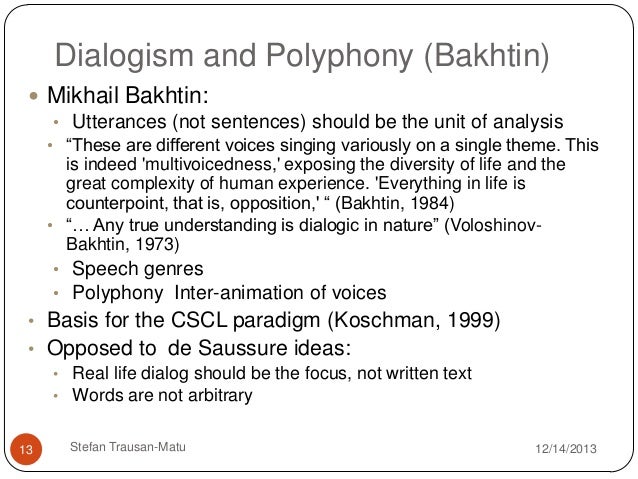

#Bakhtin chronotope summary full#
“Heteroglossia” is the most familiar translation of the Russian word разноречие ( raznorechie), which made its debut in an essay written by Mikhail Bakhtin between 19, entitled “Discourse in the Novel.” The essay was circulated to only a few friends in the 1930s and so raznorechie slumbered in relative anonymity until many years later, when the text was published, in part in 1972 and in full only in 1975, shortly before Bakhtin’s death. According to Bakhtin, that means that heteroglossia is only possible in modernity, because it is in modernity that society becomes truly historical, and languages only acquire their orientation to the future in those circumstances. One could argue, however, that heteroglossia only acquires its full significance and force when it is freed from any social function and allowed to flourish in novels. Throughout his discussion, however, Bakhtin wavers between claiming this heteroglossia exists as such in the social world, from which the novel picks it up, and arguing that heteroglossia is something created and institutionalized by novels, which take the raw material of variation and rework it into “images of a language.” Interestingly, from roughly 2000 on work in sociolinguistics has suggested that ordinary speakers do the kind of stylizing and imaging work Bakhtin assigned to the novel alone. Third, heteroglossia was a subaltern practice, concentrated in a number of cultural forms, all of which took a parodic, ironizing stance in relation to the official literary language that dominated them.

First, in heteroglossia differences of linguistic form coincided with differences in social significance and ideology: heteroglossia was stratification into “socio-ideological languages,” which were “specific points of view on the world, forms for its verbal interpretation.” Second, heteroglossia embodied the force of what Bakhtin called “historical becoming.” In embodying a point of view or “social horizon,” language acquired an orientation to the future, an unsettled historical intentionality, it otherwise lacked.
#Bakhtin chronotope summary professional#
Heteroglossia was the name he gave for the “inner stratification of a single national language into social dialects, group mannerisms, professional jargons, generic languages, the languages of generations and age-groups,” and so on, but it was not simply another term for the linguistic variation studied in sociolinguistics and dialectology. The concept of “heteroglossia” was coined by Mikhail Bakhtin in an essay from the 1930s.


 0 kommentar(er)
0 kommentar(er)
